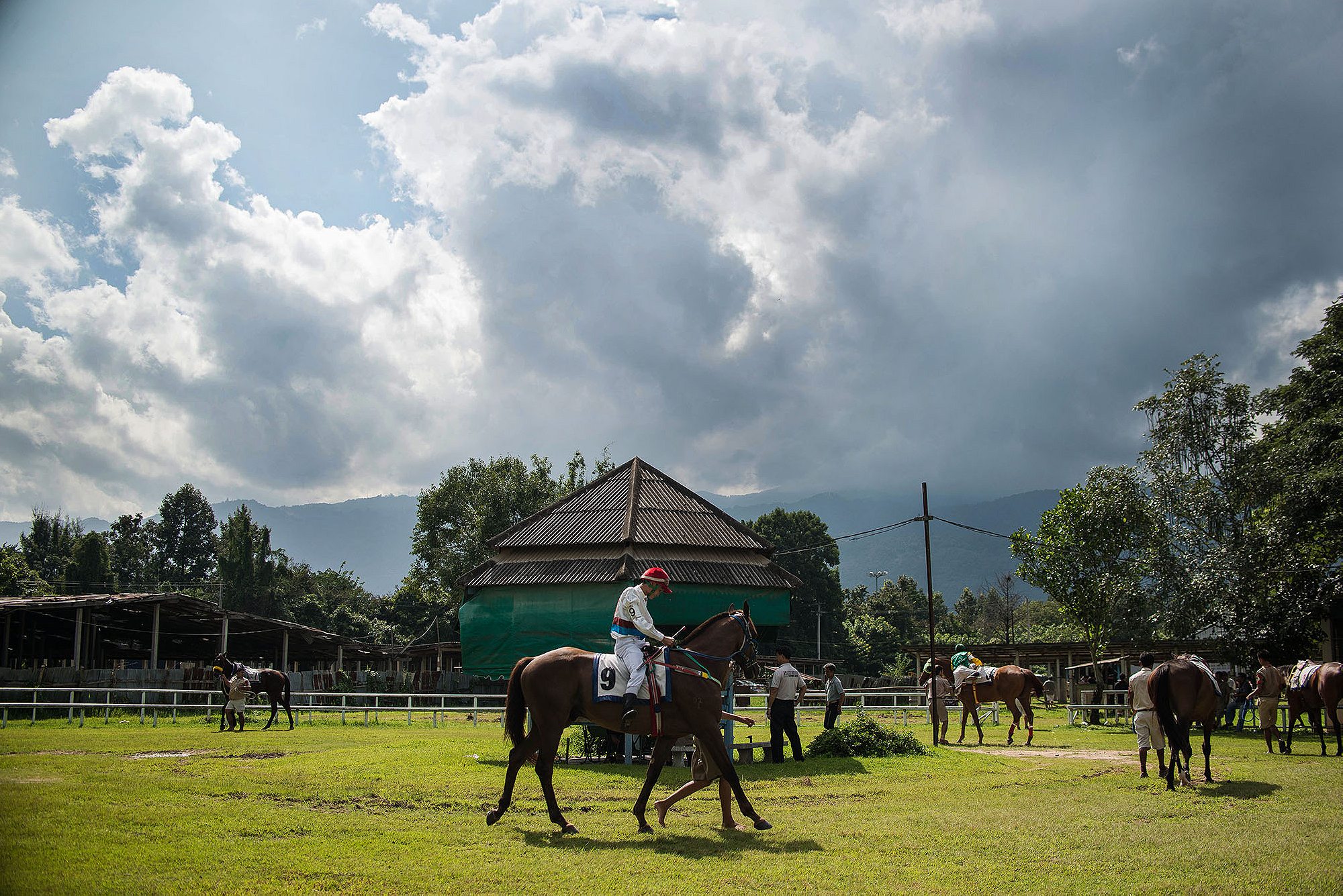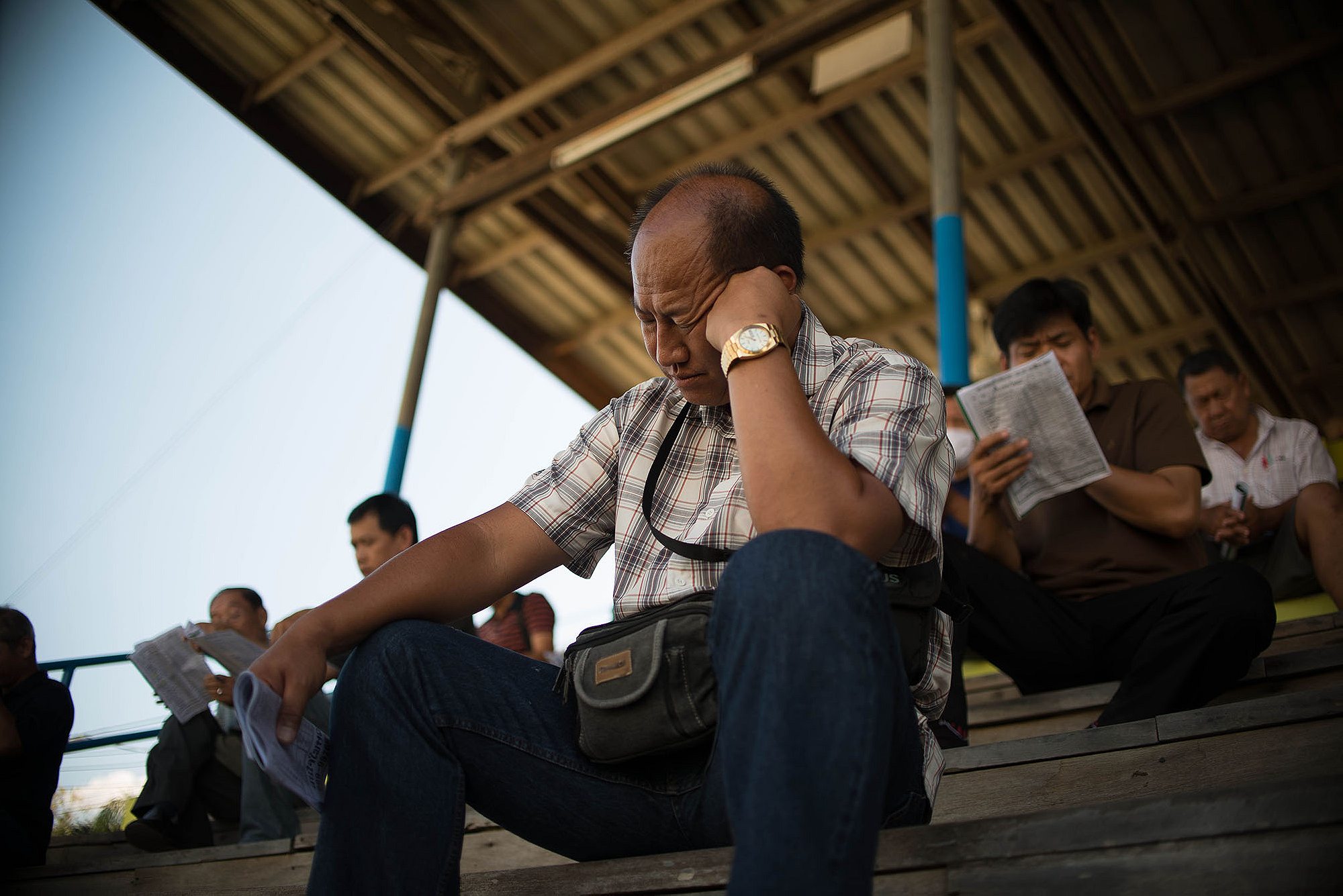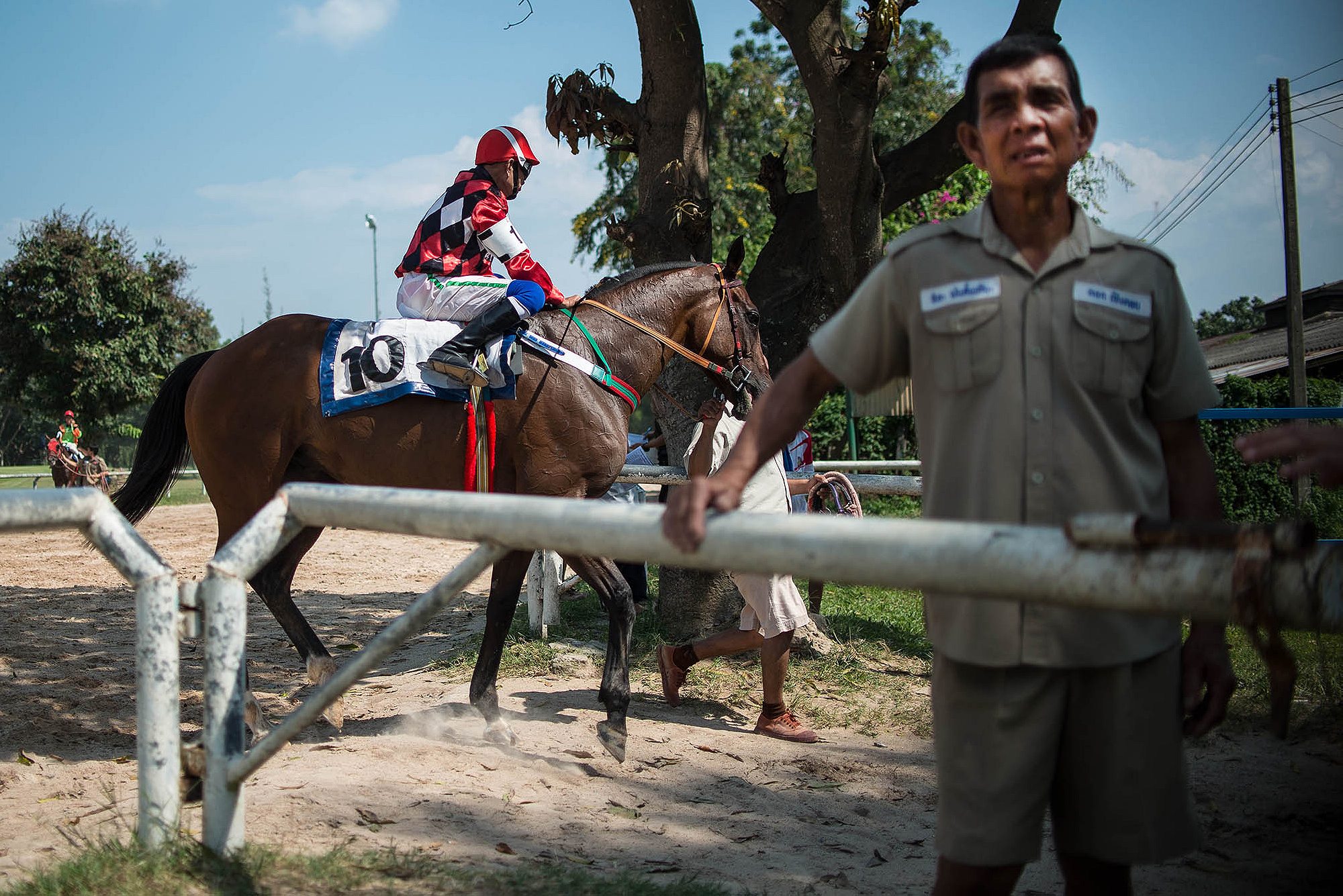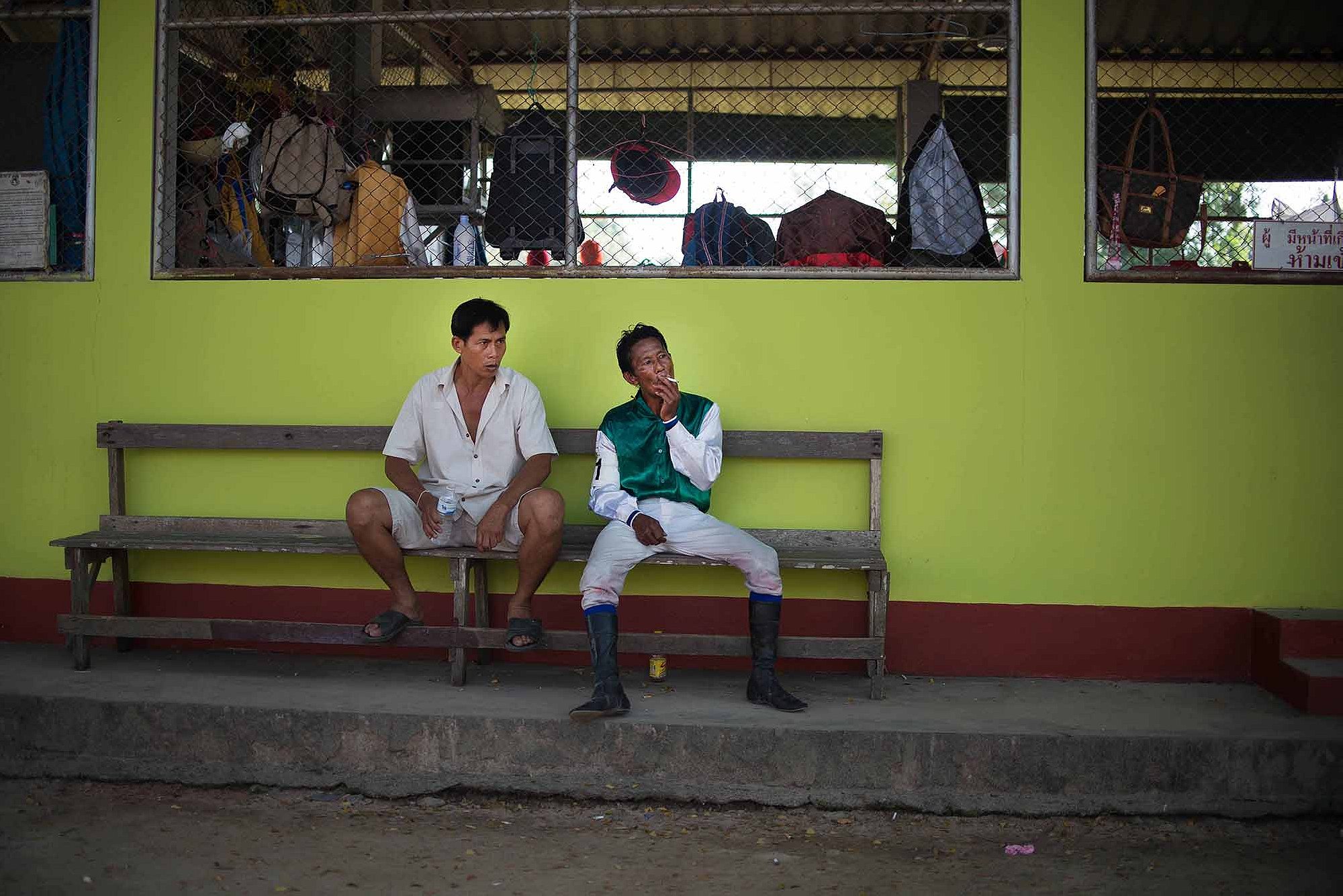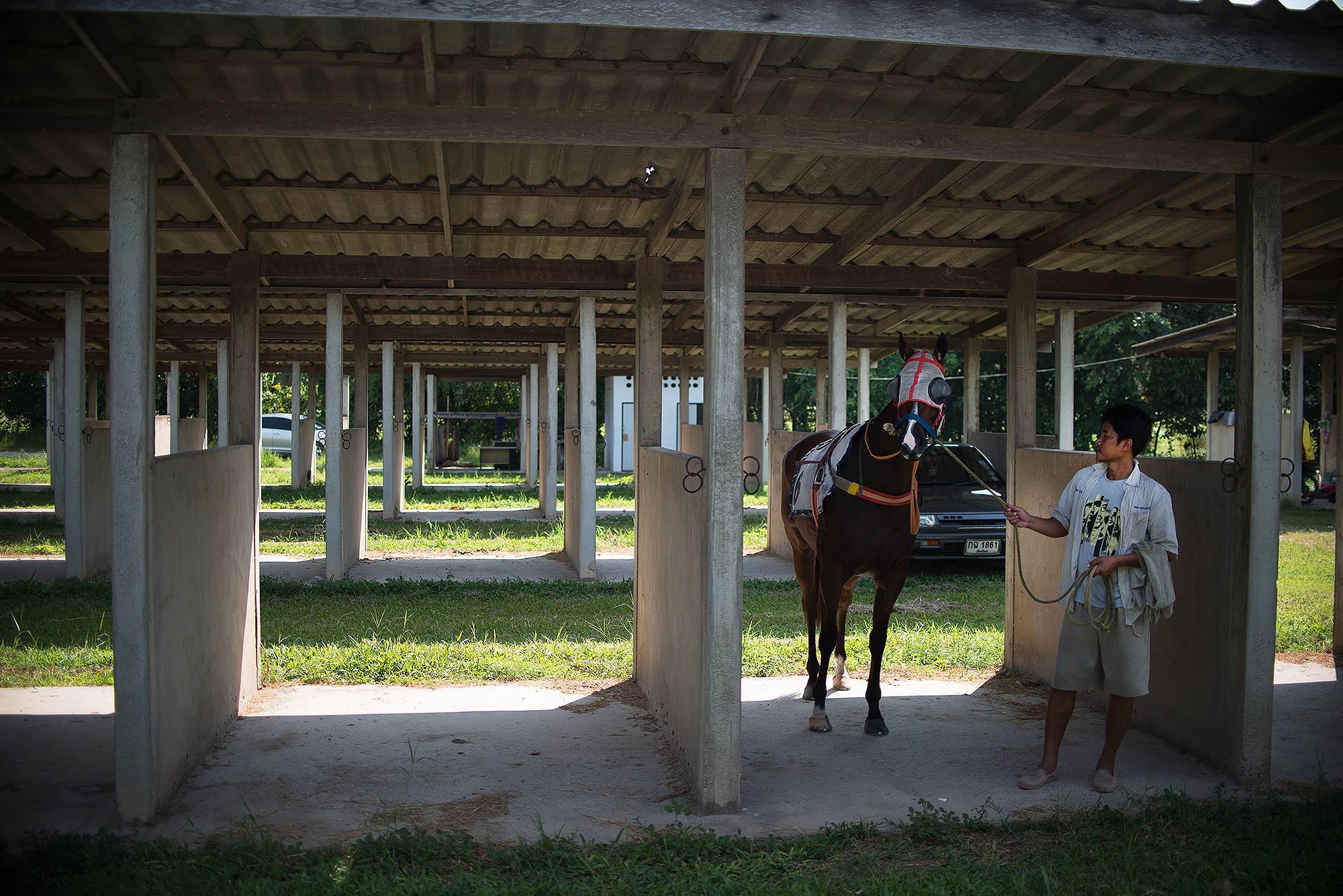Putting it all on horse number four at the Chiang Mai race track.
When I was eight years old, I won $240 at the track. My parents took me to Belmont Park—the same venue where Secretariat completed the triple crown in 1973—and gave me $3 to gamble with. Some would call this bad parenting; others would call it a wise investment. Fortunately for my parents’ lawyers, it was the latter.
I didn’t know what 7:2 odds meant, where the finish line was, or that Onoitsmymotherinlaw was an actual and legitimate name for a horse. But that didn’t stop me from giving my expert opinions on each thoroughbred as they circled the paddock. Too aggressive. Too tall. Too gray. Weird hooves. Ugly face. Bad number. Every horse had a clear disqualifying fault to my eight-year-old brain, except for number two. “He looks strong,” I told my parents in the tone of an old wise man choosing an apprentice. I bet $3. Never would I make $240 that easily again.
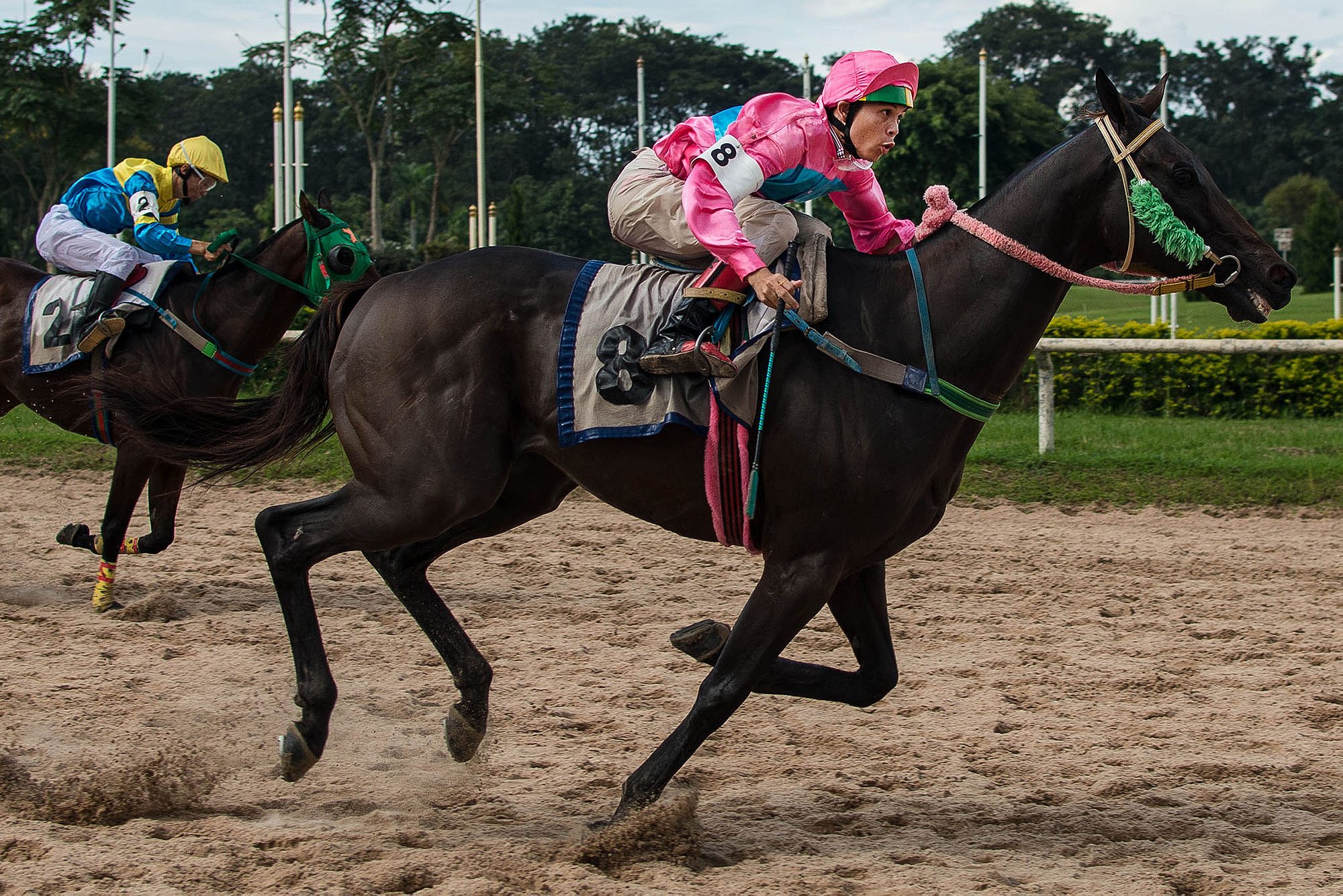
For a few more Saturdays that summer my family went to the track and I’d follow the same routine. Go to the paddock, survey the horses, pick whichever one looked strongest, and win money. I never won as much as I did the first time, but leaving the track with $80 after a few $3 bets became the norm. Wanting to keep the streak intact, and perhaps knowing it was just beginners luck, I didn’t bet again for years. But I always held onto this lasting idea that I was some sort of horse gambling savant. And I bragged about it. A lot.
It wasn’t until I moved to northern Thailand, to the city of Chiang Mai, that I finally tested the streak.
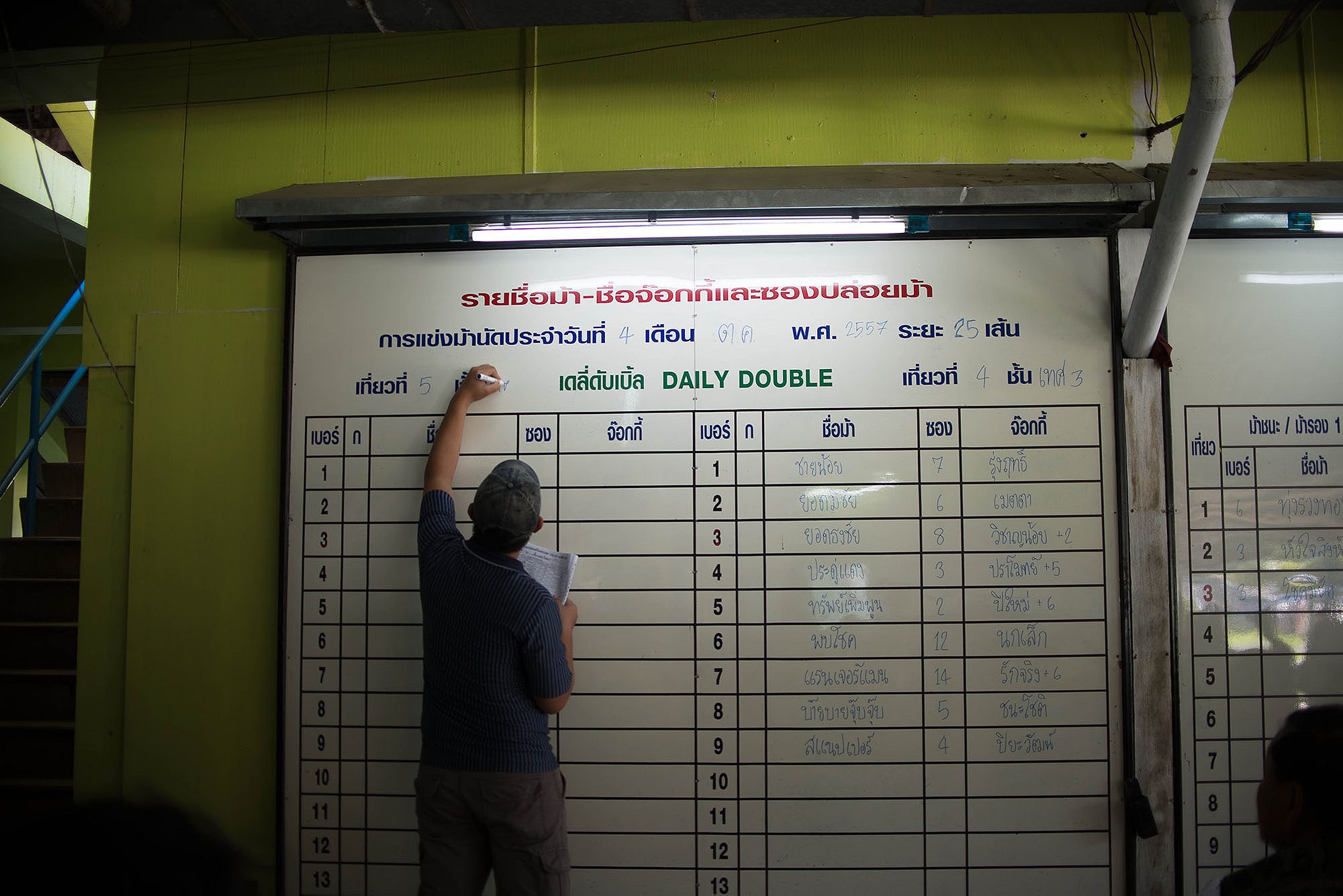
In Thailand, gambling is illegal – aside from the state lottery – and frowned upon by the precepts of Buddhism, the overwhelming majority’s religion. But that doesn’t stop Thais from spending an estimated $1.7 to $2 billion every year at casinos just over the border in Myanmar, Laos, and Cambodia. Horse racing was introduced to Thailand by a British man who purchased land in Bangkok in the 1890s. A decade later, King Rama V sanctioned it.
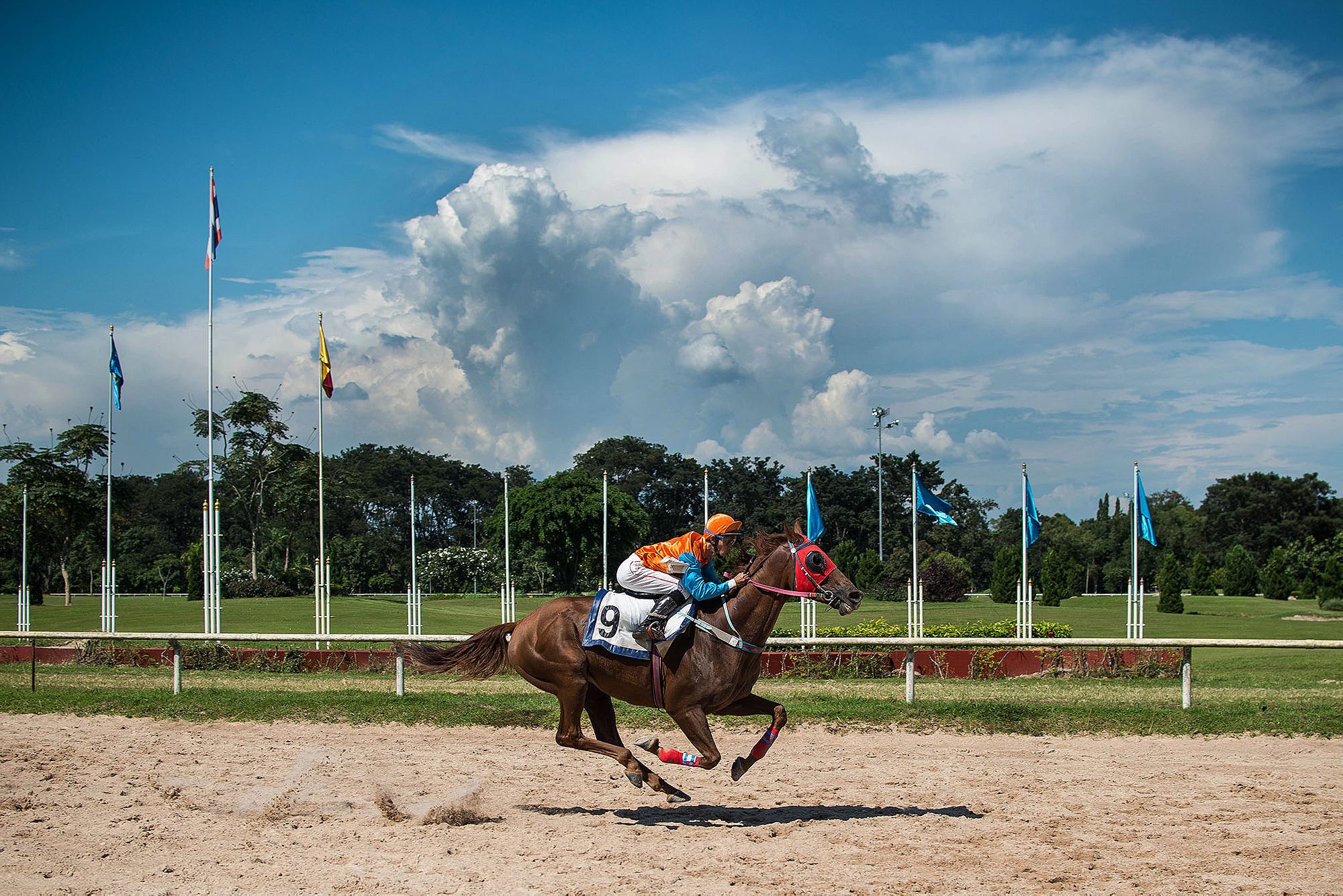
Yet here I am, at the Chiang Mai Racecourse (also known as the Nong No Horse Track), one of just seven in the country, and the only one in the scarcely populated and religious north. Because it sits on land owned by the Royal Thai Army and is managed by the Military Police (MP), the countrywide ban on gambling can be ignored here every Saturday afternoon. The weekly crowd of around 1,000 is a devoted one: it’s almost entirely male, Thai, near or above the age of fifty. There’s little to no advertising for the track in this city known for a constant stream of backpackers, so it never gets too crowded.
Some claim you can get the officials drunk enough to give you a tip
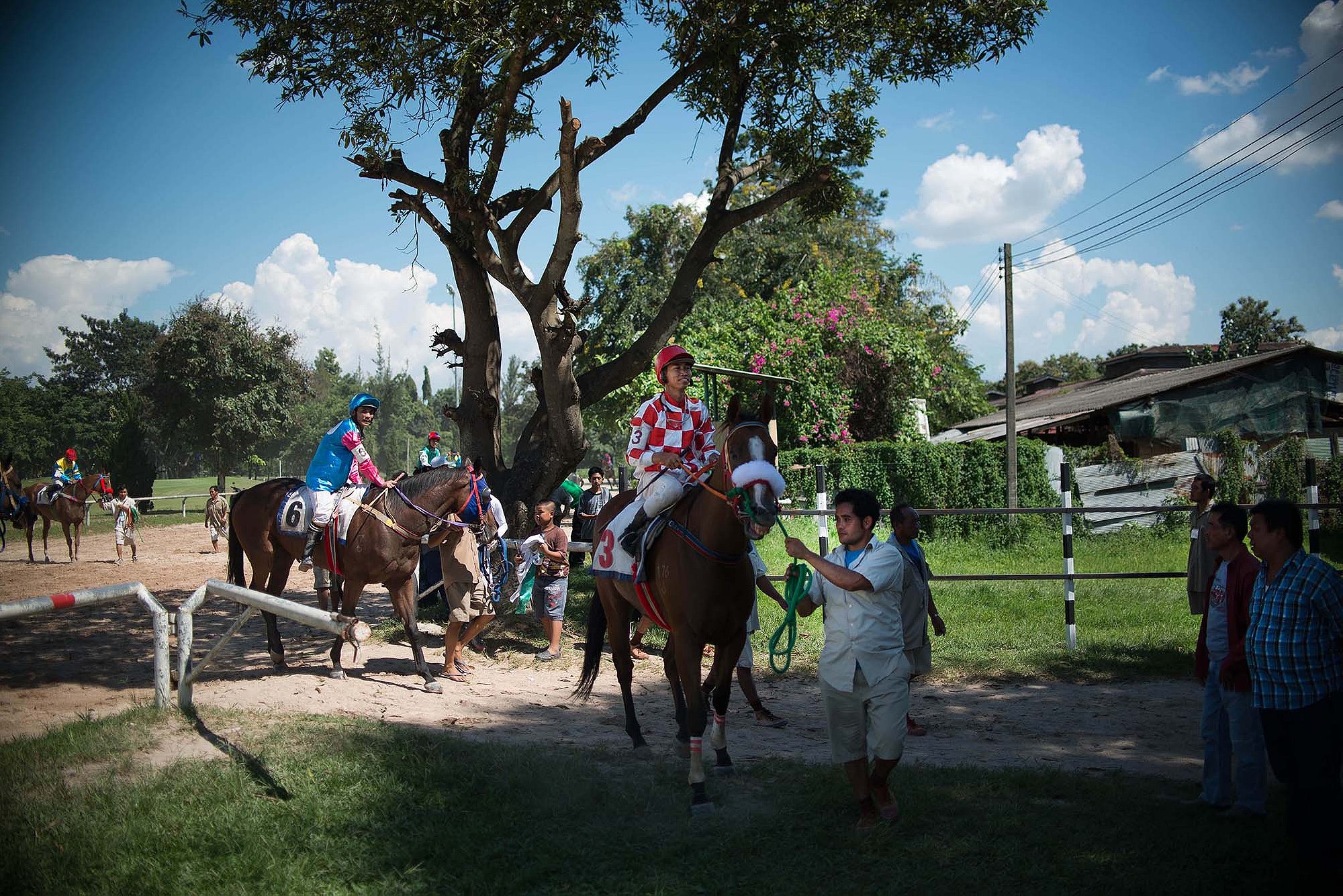
Today, like all Saturdays, the MP officers stroll the grandstand to survey the horses and the crowd. Gambling aside, the primary activity at the track is, not surprisingly, drinking. Under the stands, older men sit around tables drinking Hong Thong whiskey with their shirts rolled up, exposing their stomachs to whatever breeze they can find. Their conversation fills the musty air with a combination of celebratory laughs and accusatory yells, which isn’t surprising considering Thai horseracing is notoriously corrupt. Jockeys have been known to purposefully slow down their horses, zigzag their way around the track, or even leap from the saddle moments before the finish line to help rig the result. Some claim you can get the officials drunk enough to give you a tip on the upcoming races.
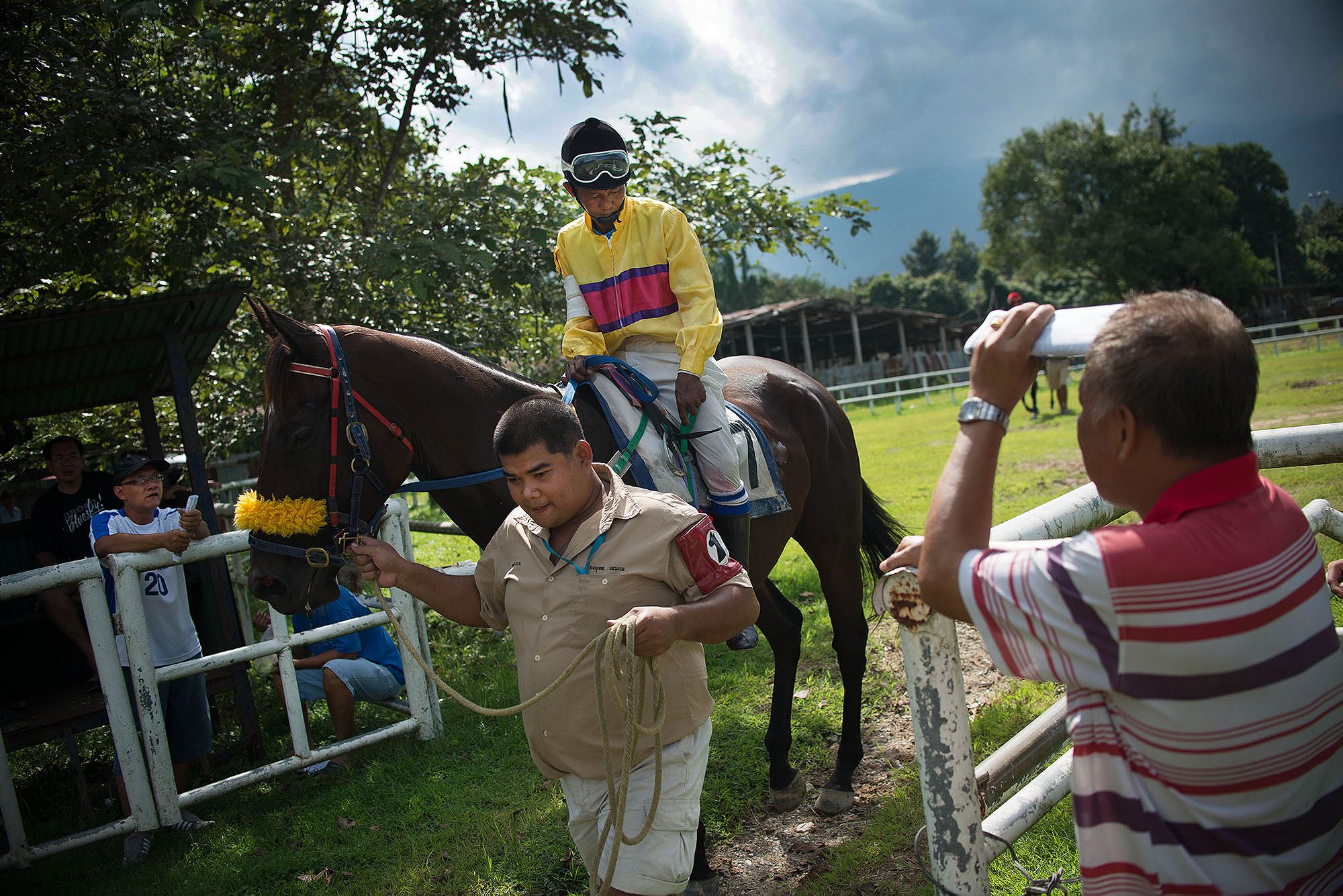
I arrive mid-afternoon, in time for a few of the final runs, but the programs are in Thai, and nowhere else is there information about the horses. Perfect. I am eight years old all over again. I can’t read the odds, don’t understand the names, I can’t even figure out where they’re starting or finishing the race. Dare I tempt the streak? Here come the horses trotting out in front of the grandstand. I make the judgments in my head. Ugly jockey. Bad tail. Boring color. Lazy trot. Weird goggles. Except number four. “He looks strong,” I say to my girlfriend before rushing off to the betting window.
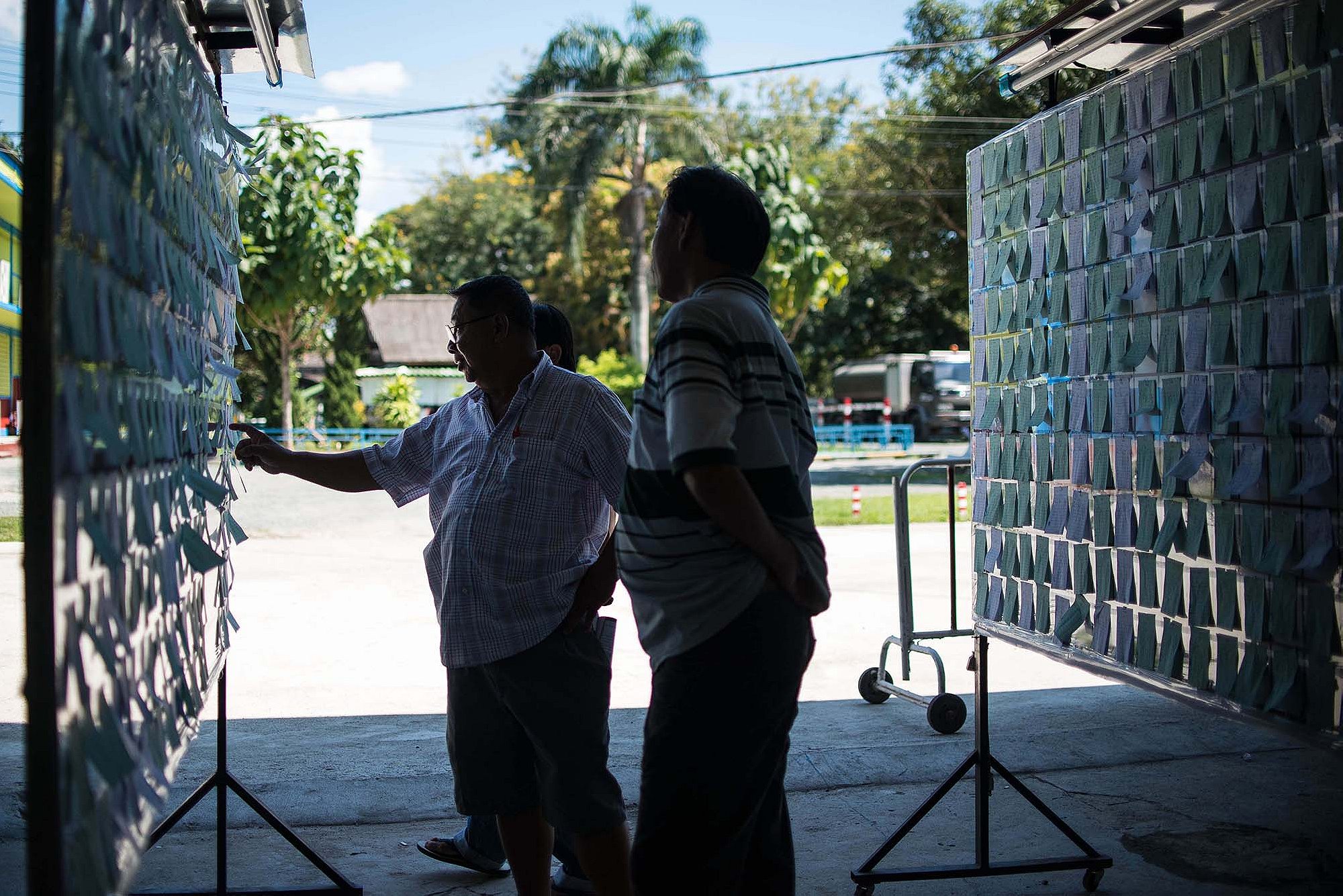
Fifty baht (about $2), on number four. In the stands, a short Thai man with reading glasses hanging around his neck, a cigarette in his mouth, and a program scribbled with racing notes, points to my ticket with an inquisitive look. I show him. He smiles, gives me the thumbs up and pats me on the shoulder. One seasoned pro to another. The fix is in.
The race starts. Over the loudspeakers, the announcer’s rapid fire Thai calls the play-by-play. I try to listen for the Thai words for “four” and “winning.” As the jockeys turn the western corner, the crowd of a few hundred people stands up and adjusts their sight line to see who’s in first. The yelling begins, and those with a horse still in the hunt wave their tickets and slap them against their thighs—the universal method for spectators to give their horse a final push toward the finish line.
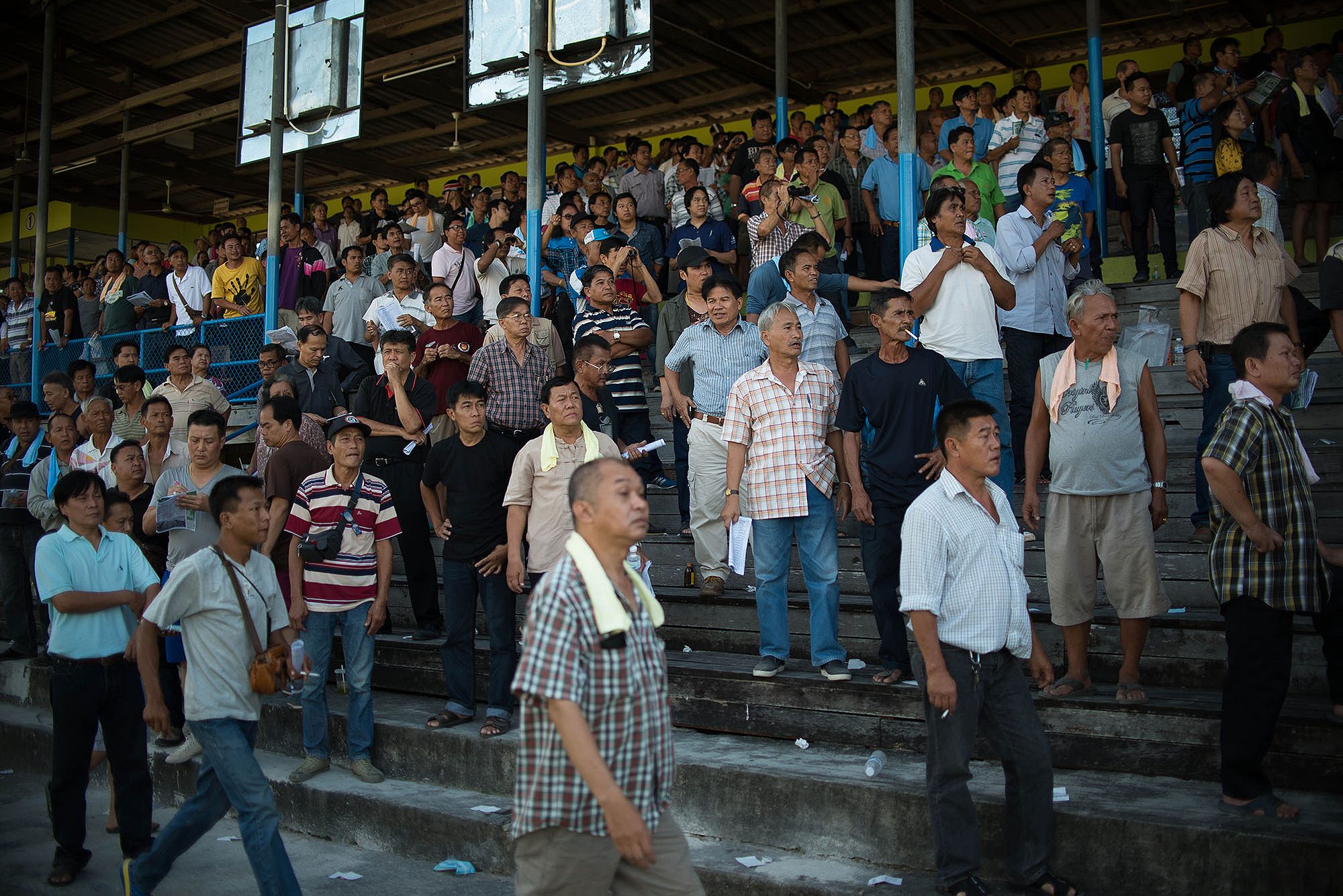
Of course number four wins. He’s the strongest one. The seasoned pro gives me a high five. At the betting window the clerk counts my winnings. One thousand, two thousand, three thousand. He sees me eyes widen. He smiles, puts the bills away, and instead hands me just 55 baht. I won 18 cents.
The streak continues. Time to call it a day.
